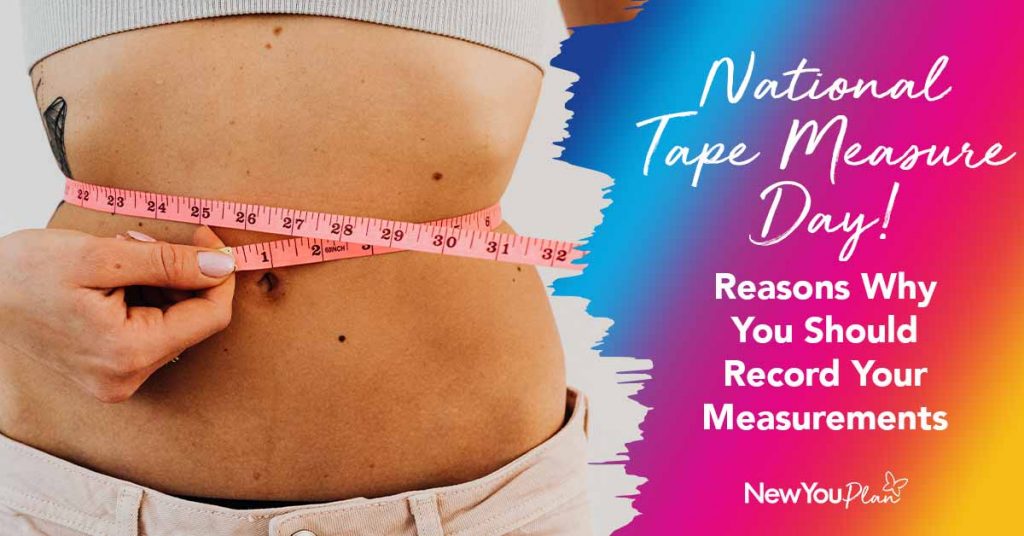
Here at The New You Plan, it (probably) won’t come as a surprise to learn that we LOVE a National Day and one we can definitely get on board with is National Tape Measure Day (14th July). Here, we share the reasons why it’s important to record your measurements and exactly how to do it.
If you’re in our Secret Slimmers group, no doubt you’ll have seen us preaching the importance of recording your measurements throughout your time on plan. In fact, we believe so strongly in it that we have even designed our very own New You branded tape measure. As today is National Tape Measure Day, it really is the perfect time to learn why recording your measurements is a no-brainer. And if you’re new to this and aren’t sure how to start, we’re here to lend a helping hand so that you can record those inch losses with ease.
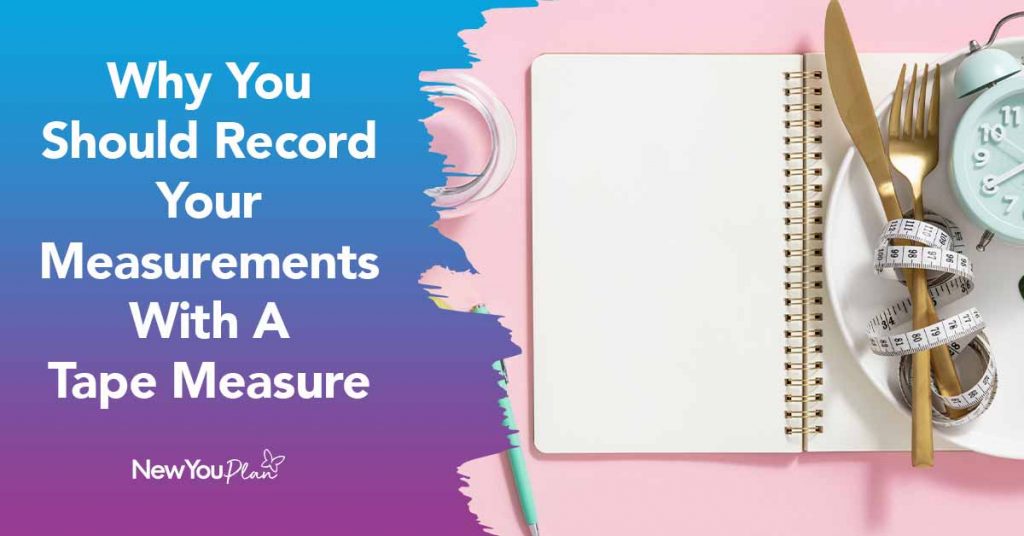
Why You Should Record Your Measurements With A Tape Measure
Whether you deem them as a friend or foe, none of us are strangers to a set of scales. For most people, when it comes to losing weight, it’s all about losing physical weight. Time and time again, we anxiously strip off, tentatively step on with our fingers crossed behind our backs as we squint an eye at the digits before us, in the hope that the scales bare a figure that is less than the week before. Some weeks we are ecstatic, other weeks, bemused and sometimes even confused as the numbers remain the same!
This is exactly why we tell our customers to not only weigh themselves every week, but to record their measurements too. By using a tape measure, you can easily keep track of the amount of fat you’ve lost from various parts of your body such as your hips, waist, bust, thighs and upper arms.
So many of our customers are shocked to learn that although the scales have stayed static, they have lost inches from their bodies that week…
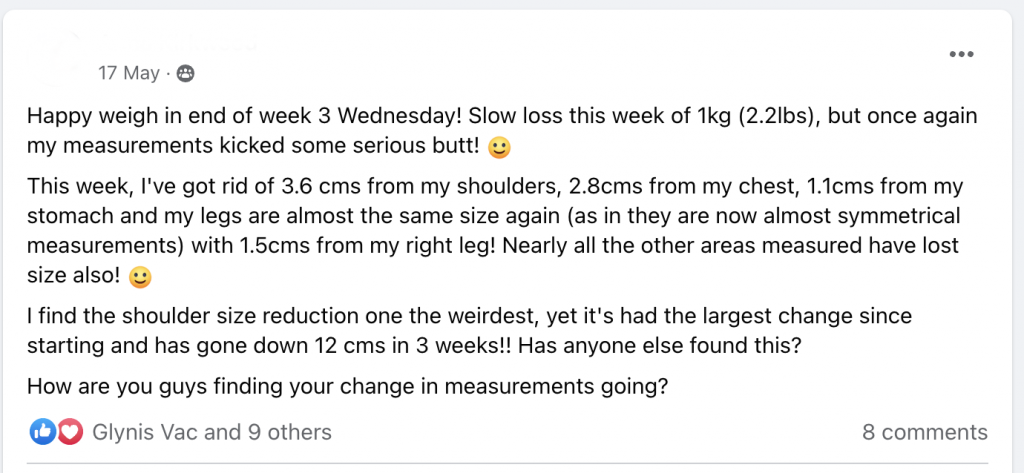


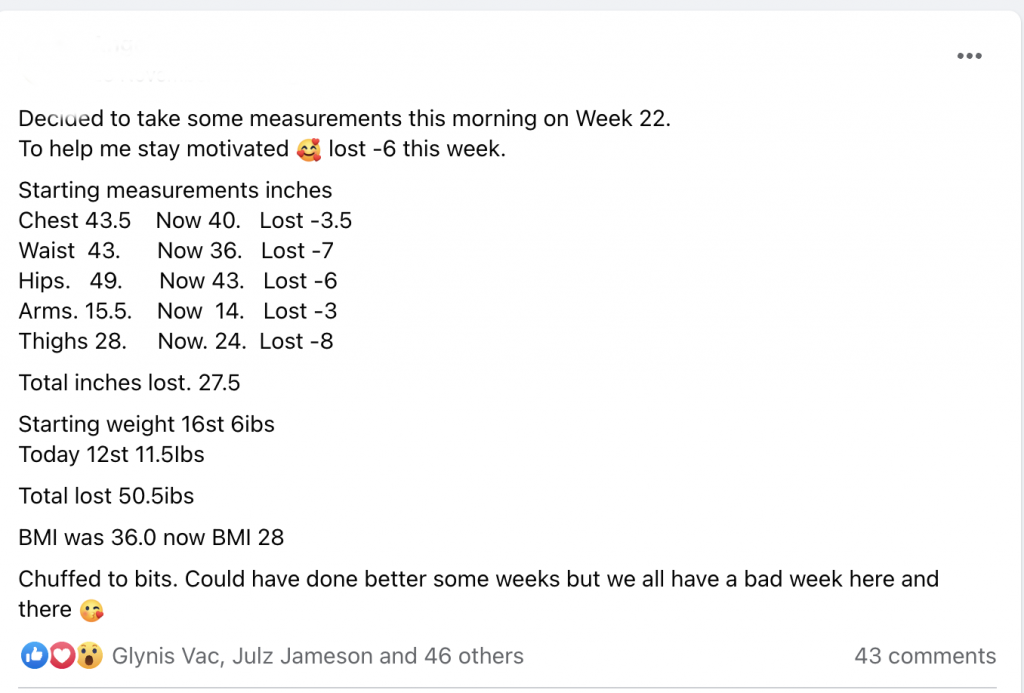
The Importance Of Waist Measurements
Recording your waist measurement is a good way to better understand the state of your health. The size of your weight measures the fat around your middle area. This area is important because the type of fat that builds around your organs is linked to high blood fat levels, high blood pressure and diabetes. A larger waist is often an indication of excess fat inside your organs, meaning you are at higher risk of developing these conditions.
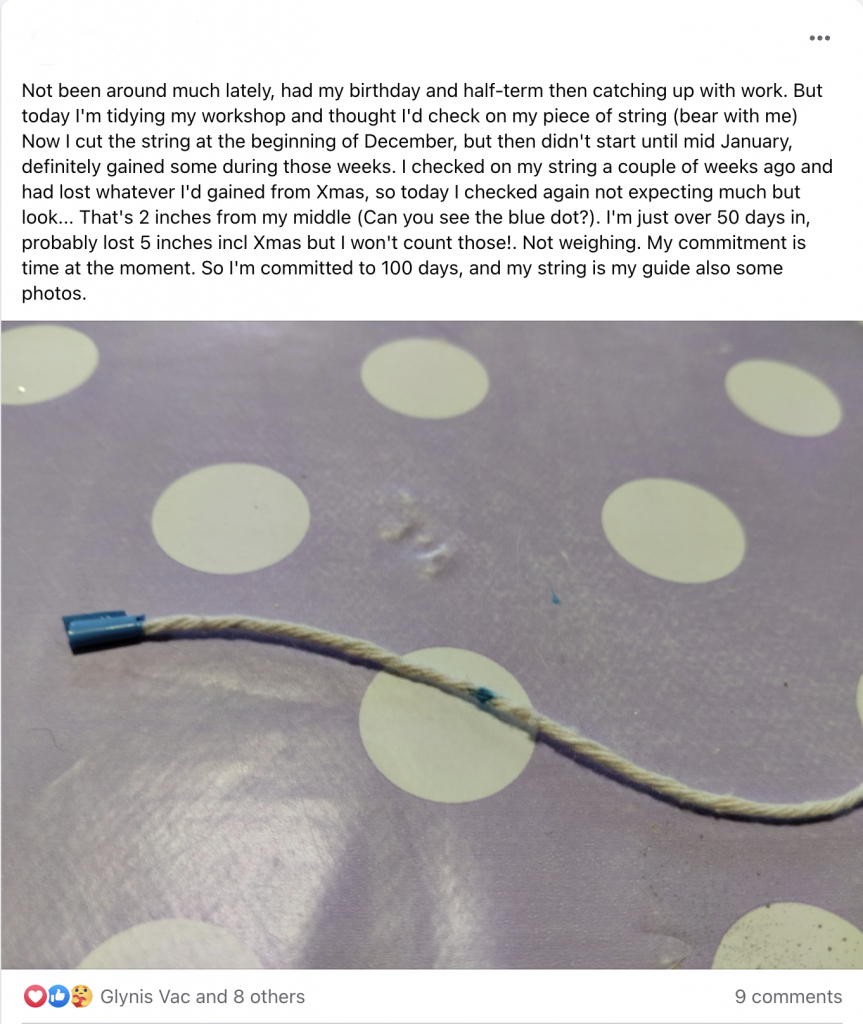
The Ideal Waist Measurements
For men, a waist circumference below 94cm (37in) is ‘low risk’, 94–102cm (37-40in) is ‘high risk’ and over 102cm (40in) is ‘very high’. For women, below 80cm (31.5in) is low risk, 80–88cm (31.5-34.6in) is high risk and more than 88cm (34.6in) is very high. These are the guidelines for people of white European, black African, Middle Eastern and mixed origin.
For men of African Caribbean, South Asian, Chinese and Japanese origin, a waist circumference below 90cm (35.4in) is low risk, and more than that is ‘very high risk’ (there isn’t a ‘high risk’ category). For women from these groups, below 80cm (31.5in) is low risk, and anything above is very high risk.*
*Source: British Heart Foundation.
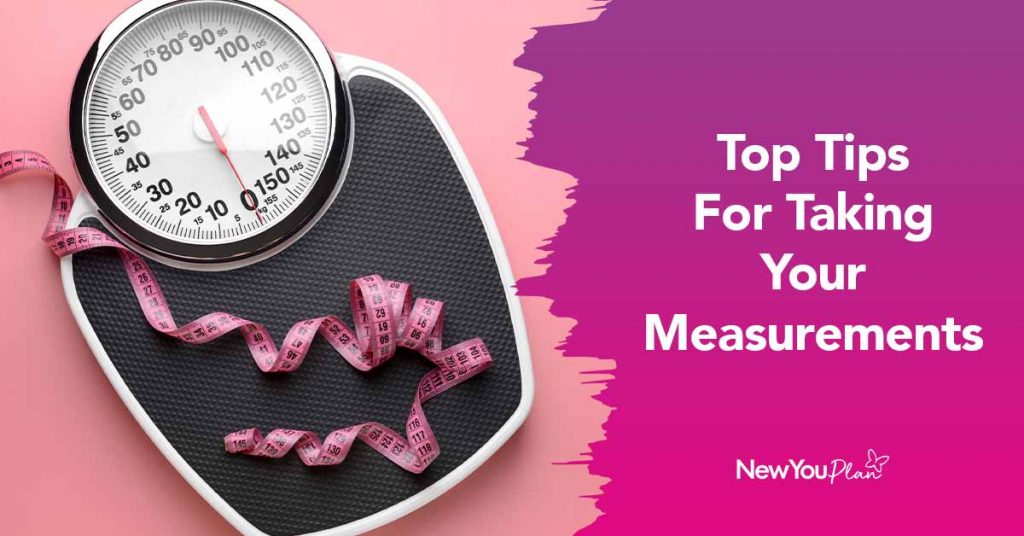
Top Tips For Taking Your Measurements
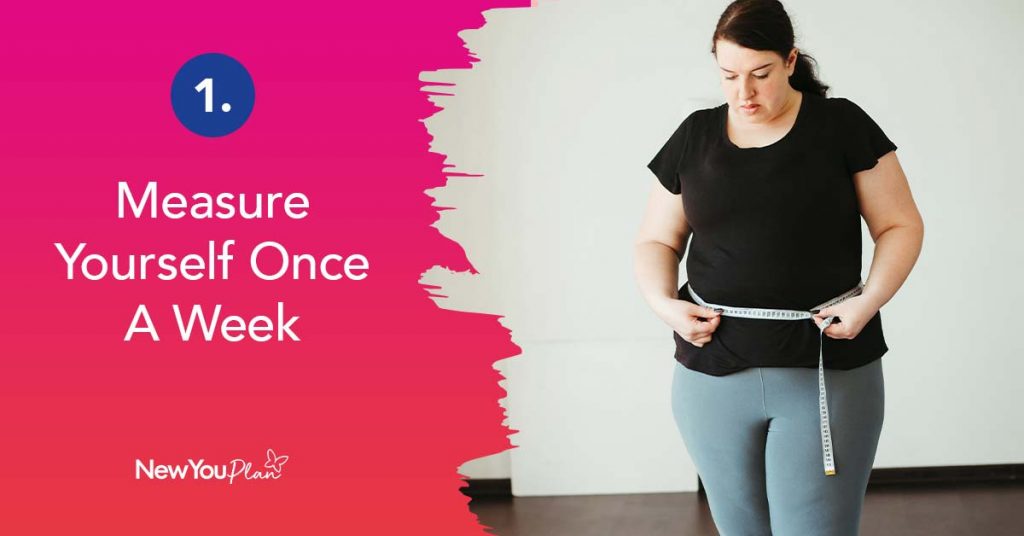
1. Measure Yourself Once A Week
Just as we recommend weighing yourself at the same time, once a week, the same applies to taking your measurements. That means, if the scales show that you haven’t lost any weight that week, your measurements might tell you otherwise. This helps avoid feeling deflated and that your efforts weren’t worth it. Knowing that you have actually made progress will keep you motived for another successful week ahead.
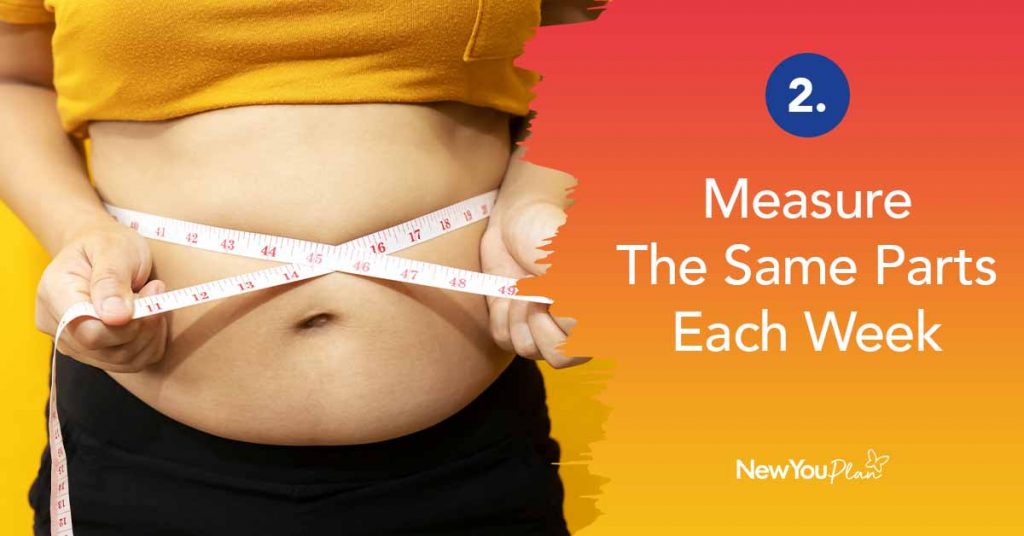
2. Measure The Same Parts Each Week
It might sound obvious but to get accurate results, make sure you measure the exact same spot each week. For example, if measuring your stomach, remember whether you are recording above, below or on the belly button. The same applies to all other areas. An easy way to do this is to find the part that has the highest fat accumulation.
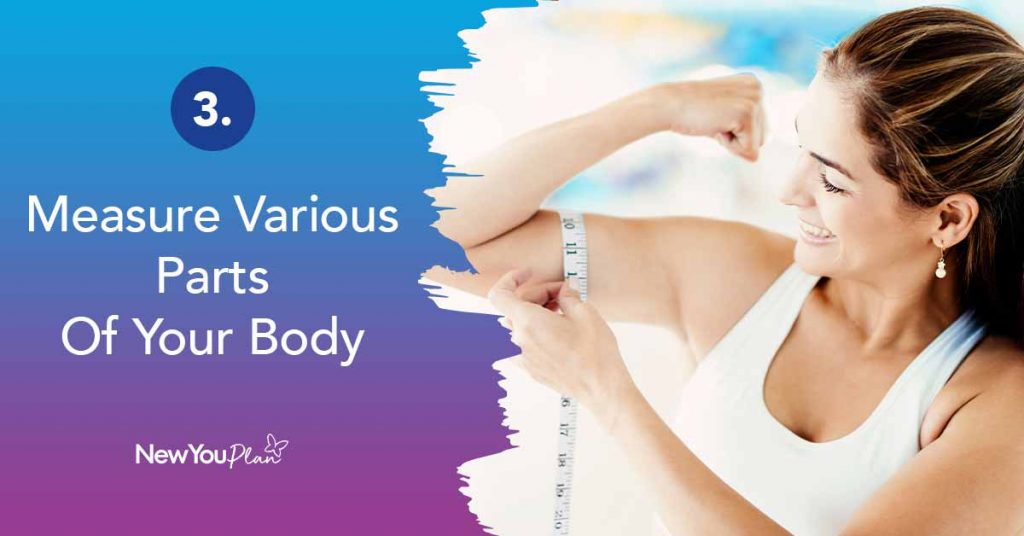
3. Measure Various Parts Of Your Body
It can be tempting to only measure obvious areas like the tummy or thighs but you’d be surprised at how many inches you’ll lose on other places such as your arms, thighs, waist or even your ankles. Record your weekly measurements in the same place so you can keep track of your running total.
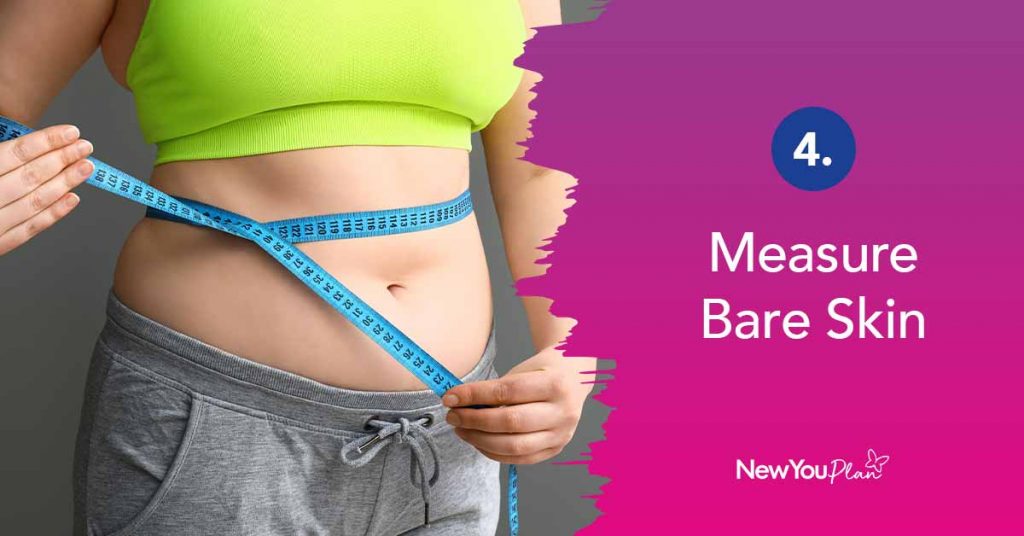
4. Measure Bare Skin
You probably weigh yourself naked or in your underwear so do the same when recording your measurements. An extra layer of fabric can add half an inch so naked skin is best.
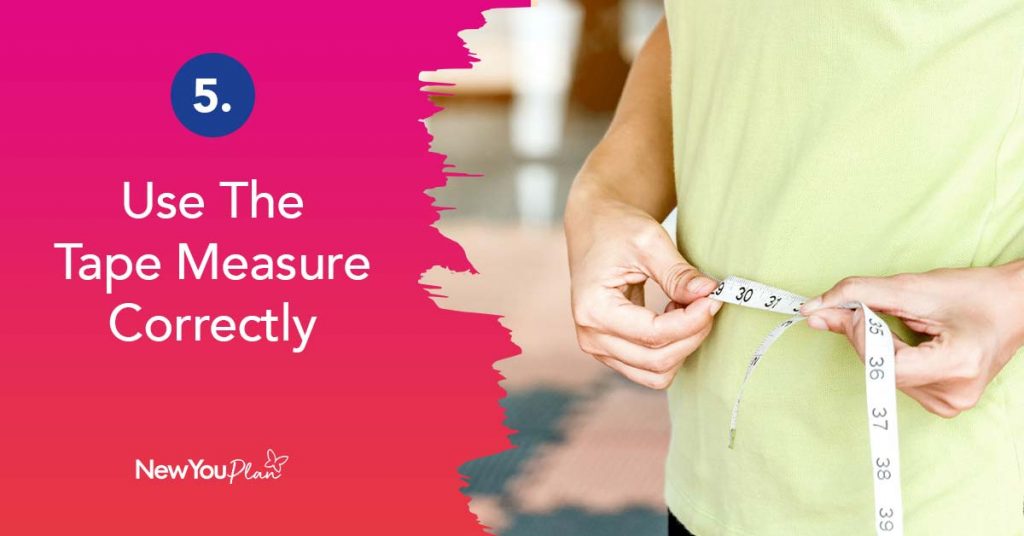
5. Use The Tape Measure Correctly
One of the most common reasons people can get different results is because they aren’t using their tape measure correctly. For accurate results, make sure the tape is sitting on the surface perfectly. It shouldn’t be so tight that it compresses the skin but there also shouldn’t be a gap. You should also make sure you are using the same tape measure each time.

6. Same Place, Same Time
Measure yourself at the same time, weekly. Most people choose a Monday morning, on an empty stomach.
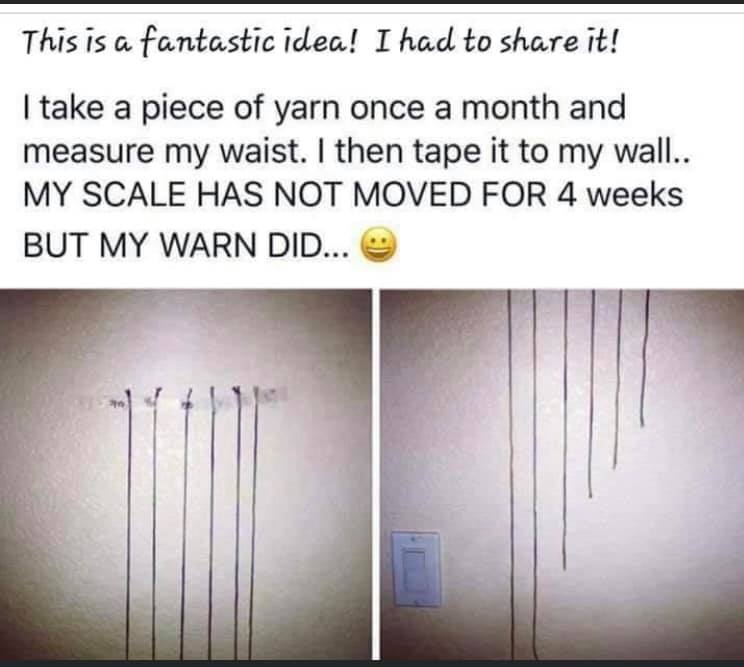
A Hack Shared In Our Secret Slimmers Group
If visualisation works for you, this hack shared in our Secret Slimmers Group is perfect. Use a piece of string, place it around your waist and cut it where the two ends meet so that it is an accurate representation of the size of your waist. Then, the next week, repeat the process with a new piece of string. Keep doing this weekly and you will be able to see the string shortening, just as your waist has.
FREE Tape Measure With All Orders Today ONLY!
To celebrate National Tape Measure Day, anyone who orders on our website will receive a New You Tape Measure, absolutely FREE!
The post National Tape Measure Day: Reasons Why You Should Record Your Measurements appeared first on The New You Plan.
Aideen
Comments
Post a Comment